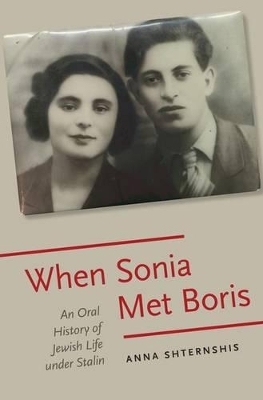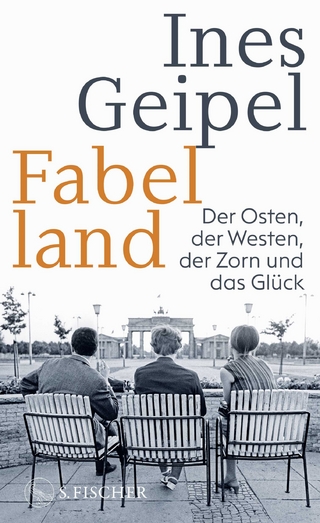
When Sonia Met Boris
Oxford University Press Inc (Verlag)
978-0-19-022310-6 (ISBN)
Russian-speaking Jews from the former Soviet Union are a peculiarity in the Jewish world. After decades living in a repressive, nominally atheistic state, these Jews did manage to retain a strong sense of Jewish identity--but one that was almost completely divorced from Judaism. Today, more than ten percent of Jews speak or understand Russian, signaling the importance of an ever-vexing question: why are Russian Jews the way they are?
In pursuit of an answer, Anna Shternshis's groundbreaking When Sonia Met Boris draws on nearly 500 oral history interviews on the Soviet Jewish experience with Soviet citizens who were adults by the 1940s. Soviet Jews lived through tumultuous times: the Great Terror, World War II, the anti-Semitic policies of the postwar period, and the collapse of the Soviet Union. But like millions of other Soviet citizens, they married, raised children, and built careers, pursuing life as best as they could in a profoundly hostile environment. One of the first scholars to record and analyze oral testimonies of Soviet Jews, Shternshis unearths heartbreaking, deeply poignant, and often funny stories of the everyday choices Jews were forced to make as a repressed minority living in a totalitarian regime. Shternshis reveals how ethnicity rapidly transformed into a disability, as well as a negative characteristic, for Soviet Jews in the postwar period.
That sense of Jewish identity has persisted well into the twenty-first century, influencing the children and grandchildren of Shternshis's subjects, the foundational generation of contemporary Russian Jewish culture. An illuminating work of social and cultural history, When Sonia Met Boris traces the fascinating contours of contemporary Russian Jewish identity back to their very roots.
Anna Shternshis is Al and Malka Green Associate Professor in Yiddish Language and Literature at the University of Toronto. She is the author of Soviet and Kosher: Jewish Popular Culture in the Soviet Union, 1923 - 1939 (2006) and more than twenty articles on the Soviet Jewish experience during World War II, Russian Jewish culture, and the post-Soviet Jewish diaspora.
Part I: Oral History and the First Generation of Soviet Jews
Chapter 1 When Only Memories Tell the Truth
Chapter 2 Who Gets to Tell the Story: Oral Histories of the First Soviet Jewish Generation
Part II: The Making of a Soviet Jewish Family
Chapter 3 Boys are Like Glass, Girls are like Cloth: Raising Jewish Children in the 1930s
Chapter 4 Weddings between Errands: Love and Family during the Soviet Jewish Golden Age
Chapter 5 Lost, Found and Guilty: The War and the Family
Chapter 6 How not to Learn about Antisemitism at Home: Soviet Jewish Family Values after the War
Part III: From Enthusiasm to More Enthusiasm: Jews in the Soviet Workplace
Chapter 7 What My Country Needs and Where My Aunt Lives: Choosing a Profession in Stalin's Soviet Union
Chapter 8 The Right Specialists with the Wrong Passports: The Search for Employment
Chapter 9 "You Do Not Seem like a Jew At All": The Atmosphere at Work
Chapter 10 Jewish Doctors and the Doctors' Plot
Chapter 11 The Happiest Memories: Life in the World of Soviet Yiddish Culture
Epilogue Soviet Jewish Oral Histories: Past and Future
Appendix 1 Methodology
Appendix 2 Statistical Distribution of Interviewees
Notes
Bibliography
| Erscheinungsdatum | 04.02.2017 |
|---|---|
| Reihe/Serie | Oxford Oral History Series |
| Verlagsort | New York |
| Sprache | englisch |
| Maße | 236 x 157 mm |
| Gewicht | 481 g |
| Themenwelt | Geschichte ► Allgemeine Geschichte ► Zeitgeschichte |
| Geisteswissenschaften ► Geschichte ► Regional- / Ländergeschichte | |
| Geisteswissenschaften ► Religion / Theologie ► Judentum | |
| ISBN-10 | 0-19-022310-3 / 0190223103 |
| ISBN-13 | 978-0-19-022310-6 / 9780190223106 |
| Zustand | Neuware |
| Haben Sie eine Frage zum Produkt? |
aus dem Bereich


